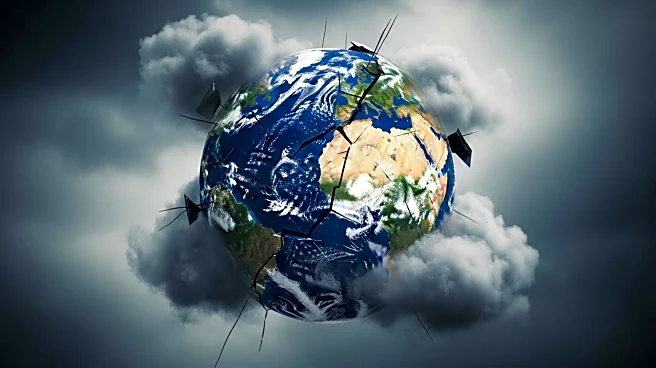What's Happening?
In response to an Israeli airstrike that killed Houthi Prime Minister Ahmed al-Rahawi and several ministers, Houthi forces have stormed United Nations facilities in Sanaa and Hodeidah, detaining at least 11 UN staff members. The UN envoy to Yemen, Hans Grundberg, condemned these actions as arbitrary detentions and raids on UN premises. The strike, confirmed by Israeli officials, targeted senior Houthi leaders responsible for military operations against Israel. The Houthi Chief of Staff, Abdul Karim al-Ghamari, who was wounded in the strike, has issued threats against Israel, promising harsh retaliation. The incident has heightened tensions in the region, with reports of attacks on vessels near Saudi Arabia, believed to be linked to Houthi forces.
Why It's Important?
The escalation in Yemen following the Israeli strike underscores the fragile security situation in the Middle East. The detention of UN staff by Houthi forces could complicate international diplomatic efforts and humanitarian operations in Yemen. The threats issued by Houthi leaders against Israel may lead to further military confrontations, affecting regional stability. The involvement of international actors, including the UN, highlights the global implications of the conflict, potentially influencing foreign policy decisions and international relations.
What's Next?
The situation may lead to increased military activity in the region, with potential retaliatory actions from Houthi forces against Israel. The international community, particularly the UN, may seek diplomatic solutions to secure the release of detained staff and de-escalate tensions. Further developments could impact humanitarian aid efforts in Yemen, as well as influence geopolitical alliances and strategies in the Middle East.
Beyond the Headlines
The incident raises ethical concerns regarding the targeting of political leaders and the impact on civilian populations. The raid on UN facilities challenges international norms and the protection of humanitarian workers, potentially setting a precedent for future conflicts. The broader implications for regional power dynamics and the role of external actors in Middle Eastern conflicts may be significant.








